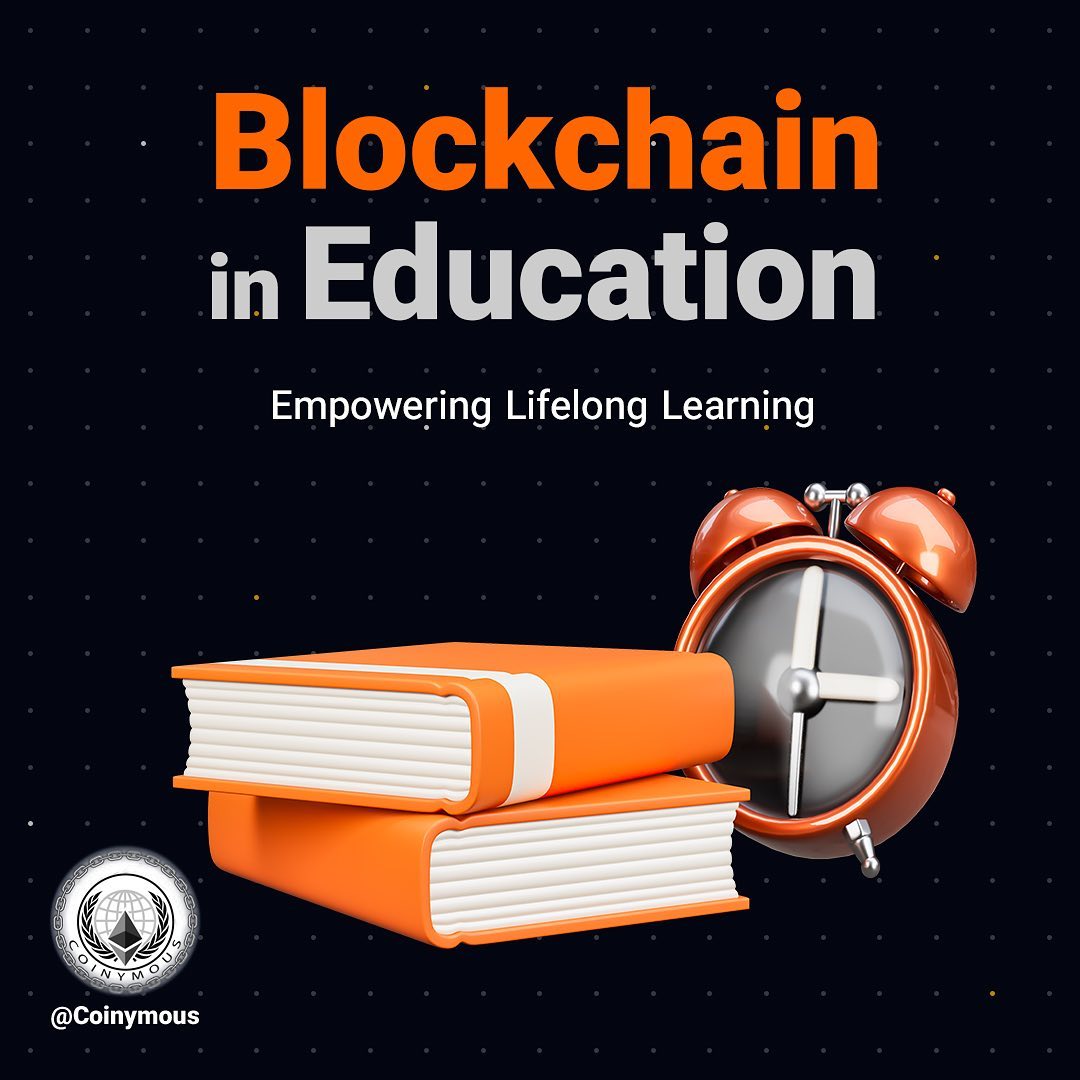Blockchain in Education: Empowering Lifelong Learning 📚
Blockchain in Education empowers individuals to engage in lifelong learning by providing secure and transparent record-keeping of educational data, ensuring verifiability and credibility of achievements. It enables personalized and continuous learning experiences, fostering a culture of learning and growth.

Introduction:
In recent years, the implementation of blockchain technology has revolutionized various industries. While commonly associated with cryptocurrencies, blockchain has found its way into the field of education, showcasing immense potential for empowering lifelong learning. This transformative technology offers students, educators, and institutions a secure, transparent, and efficient platform to redefine the traditional learning experience. In this blog post, we will explore the application of blockchain in education and understand how it can revolutionize lifelong learning.
Blockchain and its significance in education:
Blockchain technology fundamentally works as a decentralized and distributed ledger, providing a secure and immutable record of transactions or data. The application of such technology in education brings several advantages, including enhanced data security, improved verification processes, and increased transparency. These elements lay the foundation for nurturing lifelong learning experiences for both students and learners.
Digital credentialing and blockchain:
One of the most significant applications of blockchain in education is digital credentialing. Traditionally, educational qualifications and certifications were stored in physical documents vulnerable to loss or forgery. Blockchain introduces a secure and tamper-proof way of storing and verifying academic achievements. With blockchain-enabled digital credentialing, students can confidently showcase their skills and accomplishments, enhancing their employability prospects in the future.
Verification and authentication of academic records:
Blockchain helps resolve the issue of validating academic records and certificates, ensuring their authenticity. Educational institutions can record and authenticate academic achievements on the blockchain, making it easily accessible for prospective employers or other educational institutions. This streamlined verification process eliminates the need for time-consuming manual checks, simplifying student admissions and employee recruitment.
Decentralized learning platforms:
Blockchain allows the development of decentralized learning platforms that connect learners, educators, and employers directly. These platforms facilitate peer-to-peer learning, enabling individuals to access educational content, courses, and certifications without the involvement of intermediaries. By removing barriers to educational access and promoting self-directed learning, blockchain empowers individuals to embrace lifelong learning, irrespective of their geographical location or socioeconomic background.
Transparent funding and scholarships:
Blockchain technology can introduce transparency and accountability in the realm of educational funding and scholarships. By leveraging smart contracts, education-related organizations can ensure that scholarships are allocated fairly, without any biases or discrepancies. Additionally, blockchain-based platforms can provide complete visibility into how funding is utilized, promoting trust among stakeholders and encouraging more contributions towards educational initiatives.
Intellectual property protection:
The educational landscape heavily relies on intellectual property, including research papers, course materials, and innovative ideas. Blockchain offers a decentralized platform for protecting intellectual property, allowing creators to timestamp their work and establish indisputable ownership rights. This not only safeguards educators' and students' work but also encourages knowledge sharing, collaboration, and innovation within the educational community.
Conclusion:
Blockchain technology has the power to reshape the landscape of education by fostering lifelong learning opportunities. Its inherent characteristics of security, transparency, and decentralization contribute to the development of a more inclusive and efficient education system. Through blockchain-enabled digital credentialing, decentralized learning platforms, and improved verification processes, students can embrace continual personal and professional growth. As we move forward, it is crucial for institutions, policymakers, and educational stakeholders to recognize the transformative potential of blockchain and join hands in building a future where lifelong learning is truly empowered.